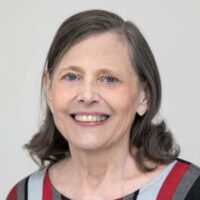Personer med FTD Advisory Council
AFTD Personer med FTD Advisory Council blev formelt chartret i 2020. Dets medlemmer vil bidrage til at sikre, at indsigt og stemmer fra mennesker, der lever med FTD, tages i betragtning i udviklingen af AFTDs politikker, programmer og tjenester. Det Rådgivende Råd for personer med FTD er en udvikling af den uformelle "tænketank" af diagnosticerede personer, som havde informeret AFTD's arbejde siden 2015.
Sandy Howe, medformand
Washington
Kevin Rhodes, medformand
New Hampshire
Anne Fargusson, RN
Californien
Deborah Jobe
Missouri
Robert Meddaugh
Iowa
Cindy Odell
North Carolina
Amy Shives, MEd
Washington
Seth Stern, MD
Georgien








